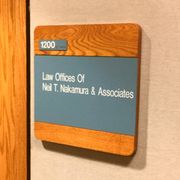Do You Need to Draft a Will If You Don't Have Children?

Many adults head into their senior years without any children. If this is the case for you, it’s still essential to plan for the legacy you’ll leave behind. If you’re wondering whether estate planning without heirs is necessary, use the following guide to gain a clearer perspective.
Why a Will Is Still Essential
When there is no will in place, the courts get to decide what to do with your estate. Since the most reasonable beneficiary choice would have been your direct descendants, the court’s job becomes much harder when you don’t have heirs. They may be more likely to distribute your assets to people of whom you wouldn’t approve. Your estate might be even be escheated, which means the state takes possession of your assets.
How to Name Your Beneficiaries
 Even when you don’t have children, there are plenty of other people in your life to whom you might want to leave gifts. When brainstorming beneficiaries, consider your close friends, nieces and nephews, godsons and goddaughters, and colleagues or mentors.
Even when you don’t have children, there are plenty of other people in your life to whom you might want to leave gifts. When brainstorming beneficiaries, consider your close friends, nieces and nephews, godsons and goddaughters, and colleagues or mentors.
If you have any pets, set aside a sum for their future care, which you’ll leave to their new owner. You can also bequeath some of your assets to a charity of your choice, or start a charity that will be established upon your passing.
Your estate planning choices must be carried out by an executor, an individual you trust to oversee the asset distribution. Before naming them, ask them in person if they would be up to the task.
If you’re ready to start estate planning, turn to the Law Offices of Neil T Nakamura & Associates in Honolulu, HI. They have over 43 years of experience helping clients plan for their legacies. To learn more about their expertise, visit the website. You can also call (808) 945-7645 to schedule a free estate planning consultation today.
About the Business
Have a question? Ask the experts!
Send your question

